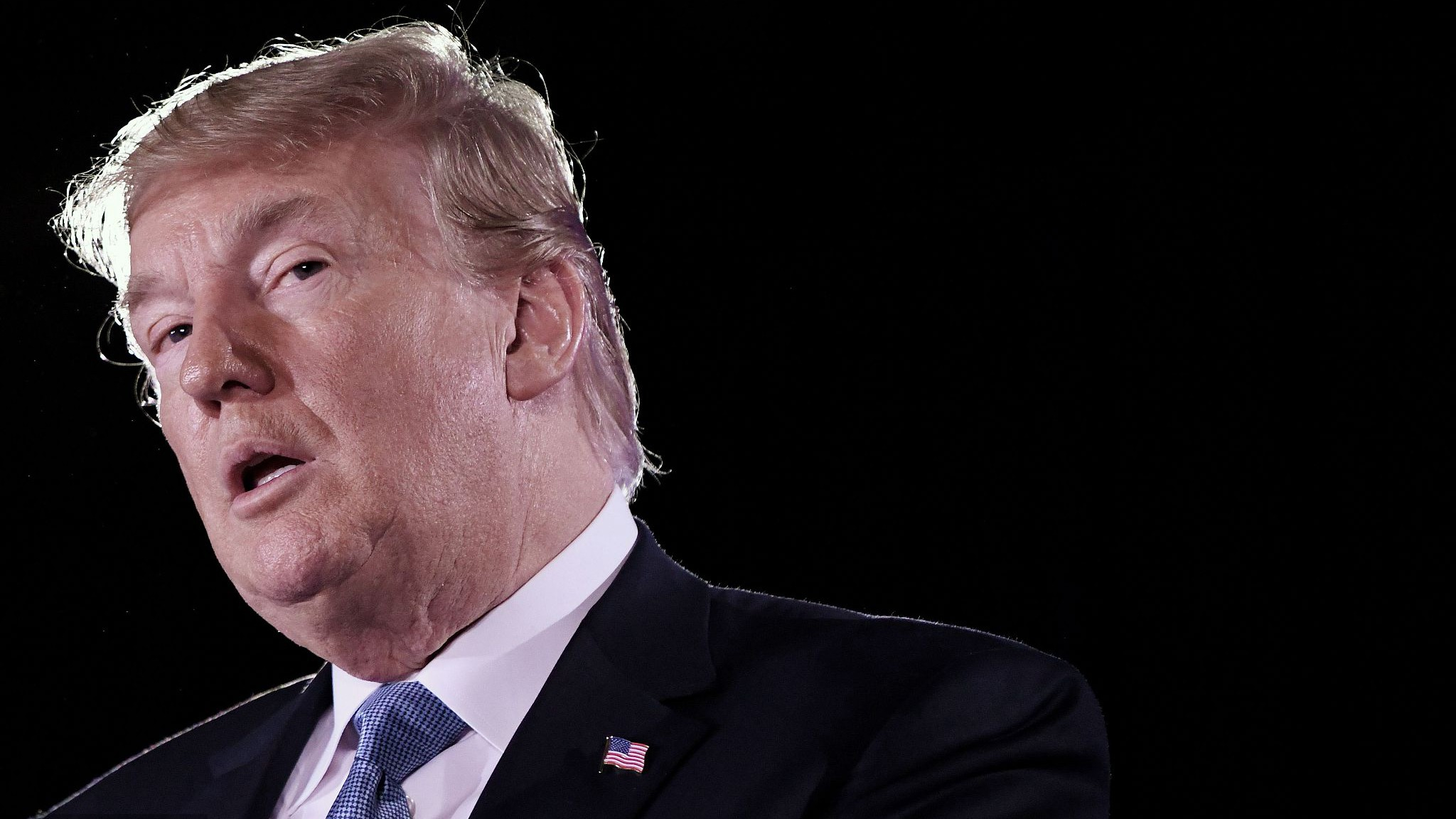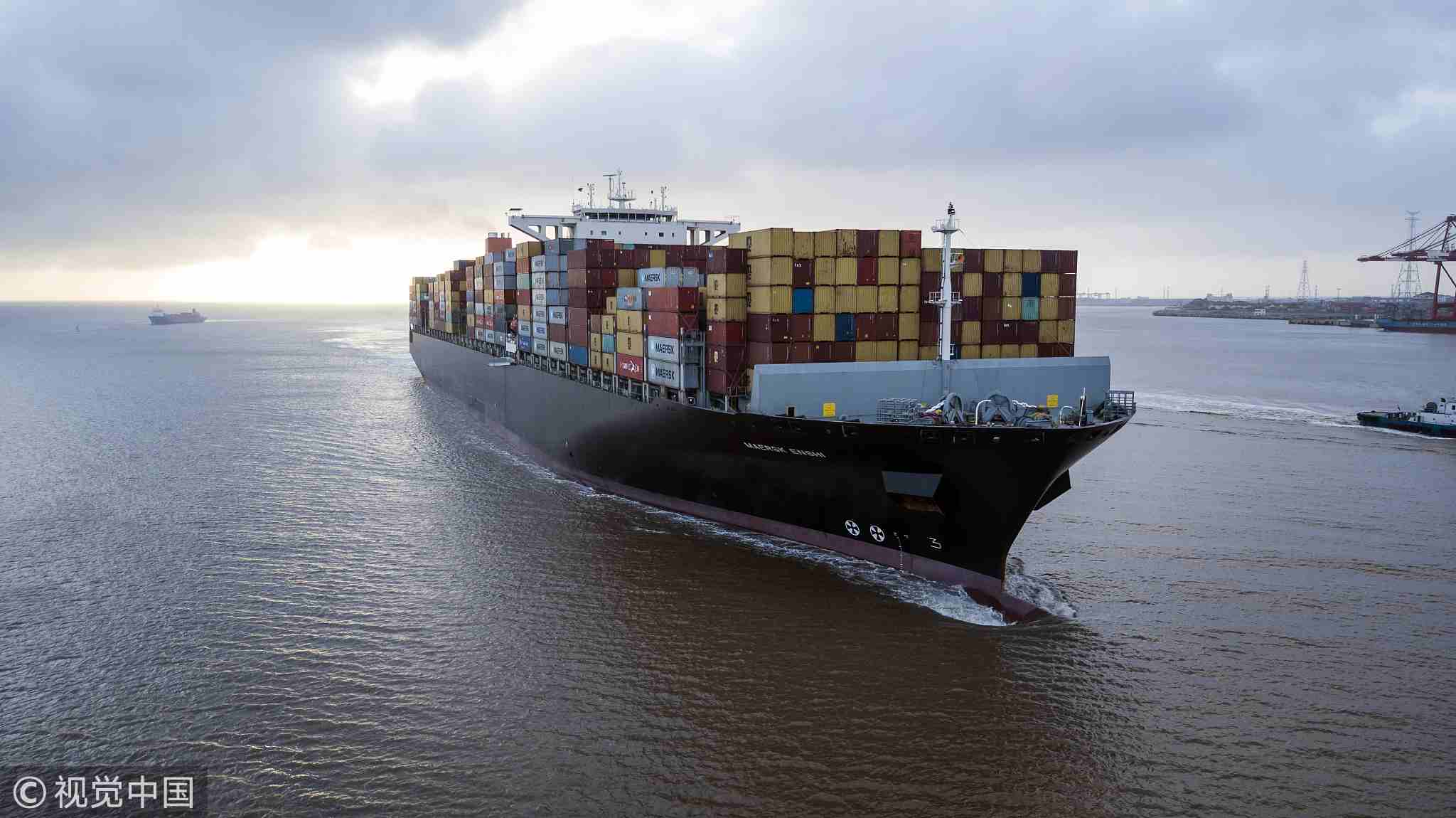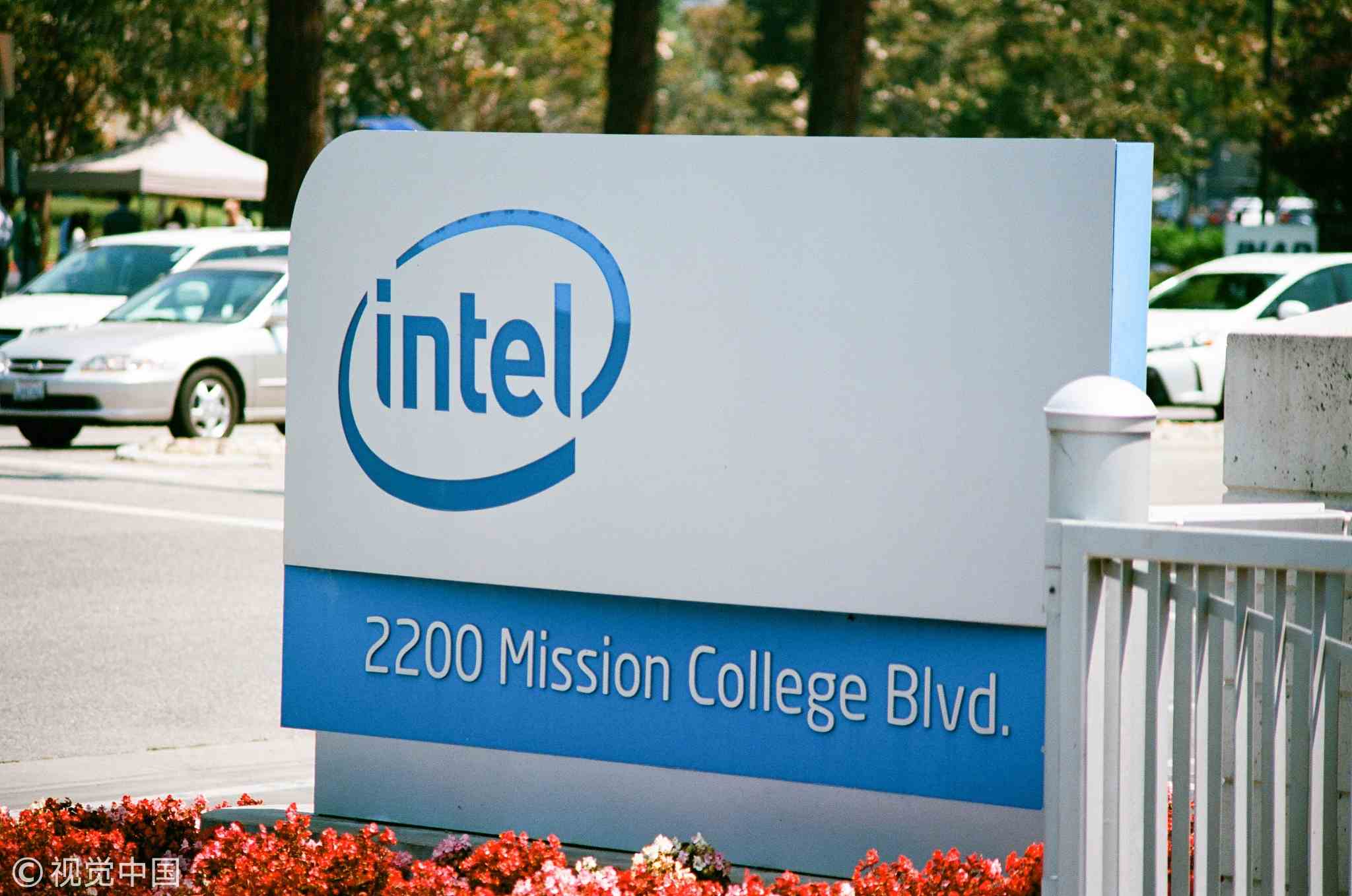
Opinions
11:42, 13-Jul-2018
Opinion: Trump’s life-and-death struggle for a trade war with China
Updated
11:22, 16-Jul-2018
Li Qingsi

Editor's note: Li Qingsi is the executive director at the Center for American Studies at Renmin University of China. The article reflects the author's opinion, and not necessarily the views of CGTN.
Trump administration newly announced a tariff list on China’s imports. What specific impact does it have on China’s trade? It is urgent to answer, though very hard in any specific way.
President Trump wants to prove that he is faithful to his promise by adding 10 percent tariffs on China’s imports worth of 200 billion US dollars after 50 billion US dollars, though he also allowed American companies that were hit by tariffs asking for exemptions, indicating his purpose exclusively targets China’s economy, rather than merely reducing trade deficit.
So far, it seems that Trump is not interested in trade negotiations, and does not care about economic consequence of the trade war, neither do his supporters, but punishing China as a “win.”
IMF chief economist Kenneth Rogoff said that no country in the world has benefited from the free trade system more than the US has, and Trump's trade adviser Navarro was wrong to say that China exploited the US through huge trade surplus, and tariffs on $200 billion imports from China will slow down the American economic growth from 0.3 percent to 0.5 percent.
Trump’s trade war will certainly hurt Chinese trade with the US, which will probably close its door to the Chinese products in the near future.
Therefore, it is time for Chinese companies to find alternatives as soon as possible in order to reduce one-side reliance on the US market both for the time being and also for a long time, meanwhile attempting to develop the domestic market is, perhaps, a good chance for the Chinese living in rural areas.

July 10, 2018: The Soro Enshi container ship, operated by A.P. Moller-Maersk A/S, sails from Yangshan Deep Water Port in this aerial photograph taken in Shanghai, China, on Tuesday. / VCG Photo
July 10, 2018: The Soro Enshi container ship, operated by A.P. Moller-Maersk A/S, sails from Yangshan Deep Water Port in this aerial photograph taken in Shanghai, China, on Tuesday. / VCG Photo
Last month, a spokesperson for the Ministry of Commerce said that, given Trump's trade behavior, China will have to adopt a combination of quantitative and qualitative measures to make a strong counter-measure.
Facing with Trump's pressing posture, how can China counter the Trump tariff bar with quantitative and quality tools?
What the trade war hurts is the whole world industry chain, including American companies. Only when the Trump administration really feel hurt and have suffered serious setbacks from the trade war will they think about turning it around.
According to Kenneth Rogoff, Trump’s shortcomings are monetary and fiscal policies which will be constrained by more fiscal deficits very likely next year.
China should not buy any more US treasures, and could aim at both Trump supporter base and US service trade, such as financial sector, tourism and education industries operating in China as counter-punching targets.
It seems that the Sino-US trade war will be a long-term and difficult fight. How should China improve its strength while ensuring that it wins the trade war?
Trump once said it was very easy to win a trade war with China through hi-tech and advanced industries such as chips controlled by American companies, so if he is proven correct through the trade war, he would certainly be encouraged to demand more from China.

Signage with logo at the Silicon Valley headquarters of computer chip manufacturer Intel, Santa Clara, California, August 17, 2017 / VCG Photo
Signage with logo at the Silicon Valley headquarters of computer chip manufacturer Intel, Santa Clara, California, August 17, 2017 / VCG Photo
Trump is eager to win a quick victory on the trade war with China. In order to prevent it, China must prepare for a long-term trade war by sacrificing at present. Since Trump does not care for anything except concessions from China seen as his “win,” perhaps China no longer needs to say anything else except prepare for a counterattack.
Since China's reform and opening-up, the country’s foreign policy has always focused on the American lead. Trump’s attitude to China indicates that Washington is going to force China to depart.
So it is time for China to ponder changing its long-time policy of relying on the American market to develop its economy and international relationships.
At least China should not expect that much as it did in the past through cooperating with the US. China should take responsibility not only for itself, but also for the world.

SITEMAP
Copyright © 2018 CGTN. Beijing ICP prepared NO.16065310-3
Copyright © 2018 CGTN. Beijing ICP prepared NO.16065310-3